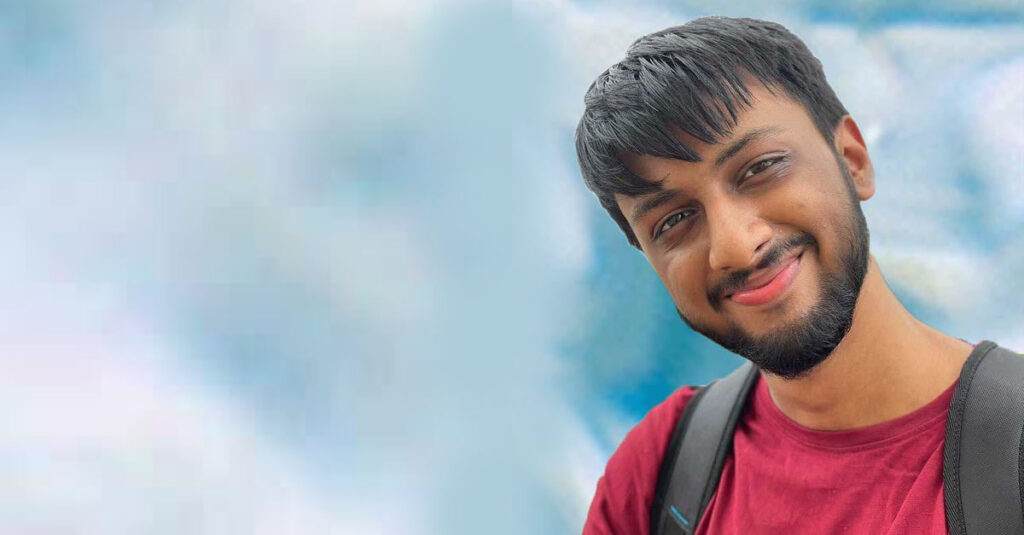
Like most of the yesteryear or otherwise shining young talents of the film world, who, later shot into fame, Rishav Raman, a young and emerging Oman-born filmmaker, has burst into the Indian short film making scene, with an early output that is already creating waves.
Head start
Glance through the early list of the most famous, revered writers and directors of this century, and you will find that they launched themselves by making home movies, student films and shorts. And by that yardstick, Rishav, who is a graduate of the New York Film Academy (NYFA), has already got a head start as his debut short is now a subject of discussion and enjoying critical acclaim in that category of films.
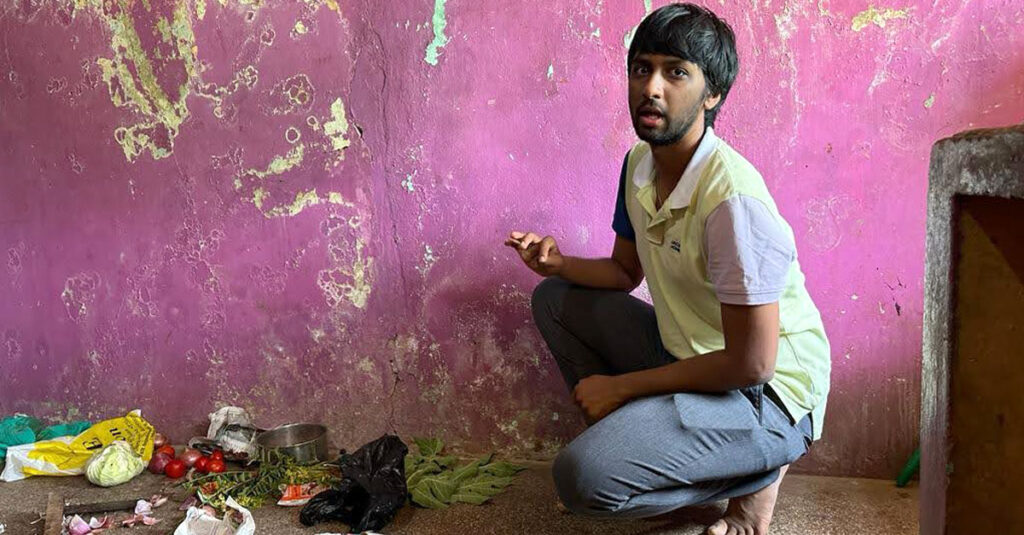
Best Indian Short Film
Dream Door (Kanavu Kadavu), a Tamil-short film, written and directed by the 23-year old Rishav, has won ‘Best Indian Short Film’ at the Poombukar Independent Film Festival (*) and was adjudged the ‘Best Student Film’ and ‘Best Director’ at the Triloka International Filmfare Awards (* 1).
It has also earned a place as a semi-finalist at the prestigious Flickers’ Rhode Island International Film Festival (* 2), an Oscar-qualifying event held in New York.
Yearning for a door
The film is cited as “a moving exploration of themes such as isolation, poverty, and the yearning for security” and narrates the story of a young boy’s longing for a door for his tiny house so that he feels safe and secure when alone. The film features rising talents Shakti Rithvik and Mohammed Asif Hameed and showcases the cinematography of Nishant Arya and the music composition of Meghana Tadanki.
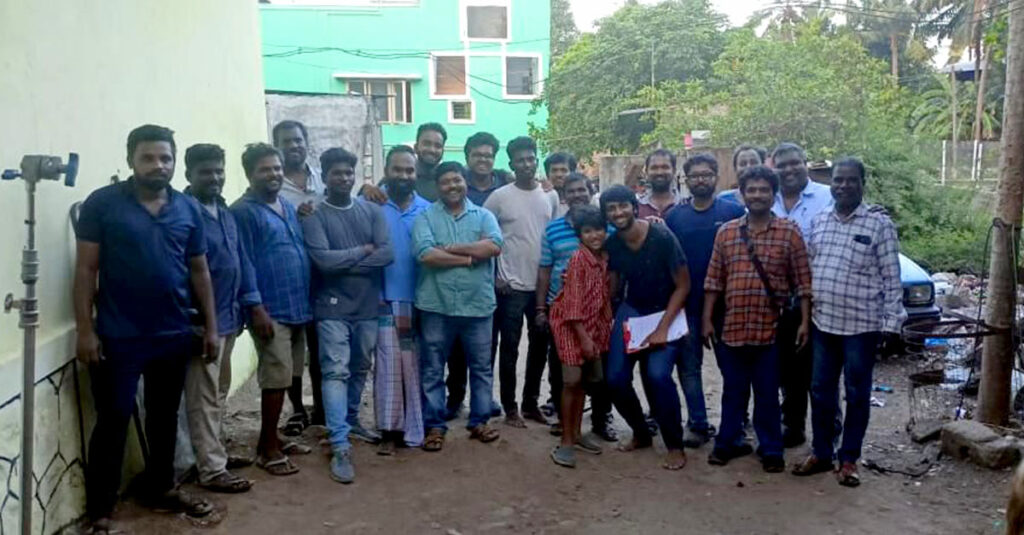
Packed creative calendar
Having written over 10 short films, ‘Dream Door’ is part of Rishav’s thesis at the NYFA. With the short film set to release on YouTube soon, Rishav has his creative calendar packed with new projects. He has written two feature screenplays and two novels, which are currently in development for potential sale to production and publishing companies.
Currently, short films
Rishav, in his talk with the Black & White revealed that he was currently focussing on shorts before he garnered the confidence to plunge into feature films.
“Though the ultimate goal is feature films, I am currently focusing on short films, because I believe it is the perfect medium to improve my skills and it is also a great test for filmmakers to tell stories with very limited time,” Rishav told the Black & White, adding that his dream is to make a series of feature films, which he can look back at “with a sense of pride and satisfaction”.
“To achieve that goal, my short-term goals have been in developing my skills and trying to practice writing/directing through short films as much as possible,” he further added.
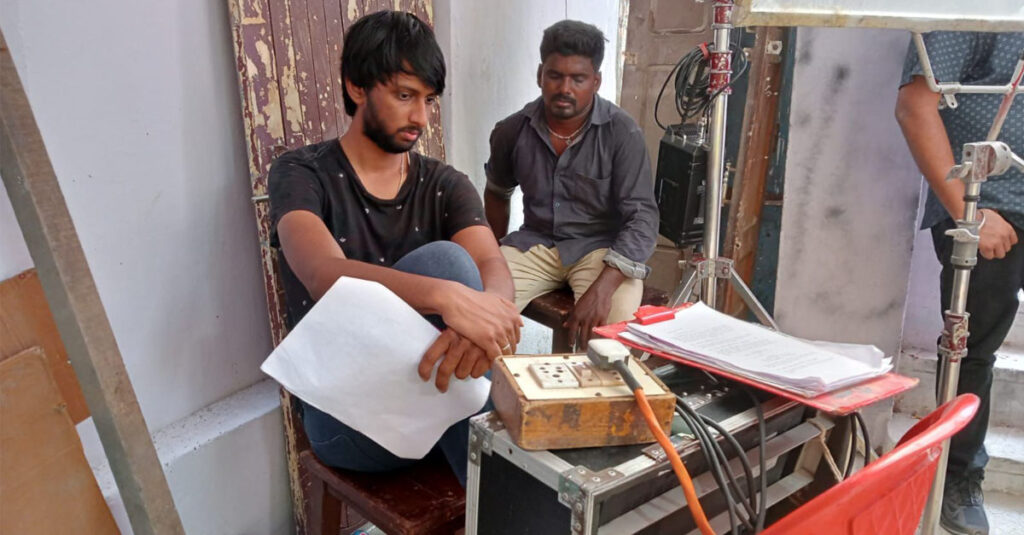
Excerpts:
Give us a brief about your stint with the NYFA.
I graduated last year from the NYFA. I moved to Los Angeles when I was 21 to pursue a master’s degree in filmmaking. There, I got holistic training in all aspects of filmmaking. I came to LA as soon as I finished my bachelor’s degree, because I was confident that this is what I wanted to do. I am grateful that I have acquired decent experience over the last couple of years, which I can now apply to my work.
Have you studied in Oman, and if so, which school? Please give us a brief about your journey from Muscat to the NYFA. Have you always been interested in films and the making of them? Do you like full length feature films or short films and please state reasons for the same?
I was in Muscat, till I was about six, after which I moved to Chennai, India. I studied at the Indian School Al Ghubra (ISG), and I still remember having met great teachers who always supported my creative aspirations.
The interest in films came about when I was in the 10th grade, having been a part of my school theatre productions, where I realised, I loved the process of storytelling. Though I still love theatre, I wanted to venture into films because I liked the idea of telling stories on a universal scale, wherein you can access people from all walks of life. Though the ultimate goal is to tell feature films, I am currently solely focussing on short films, because I believe it is the perfect medium to improve my skills and also; it is also great test for filmmakers to tell stories with very limited time (which helps in an era where the attention span is so short).
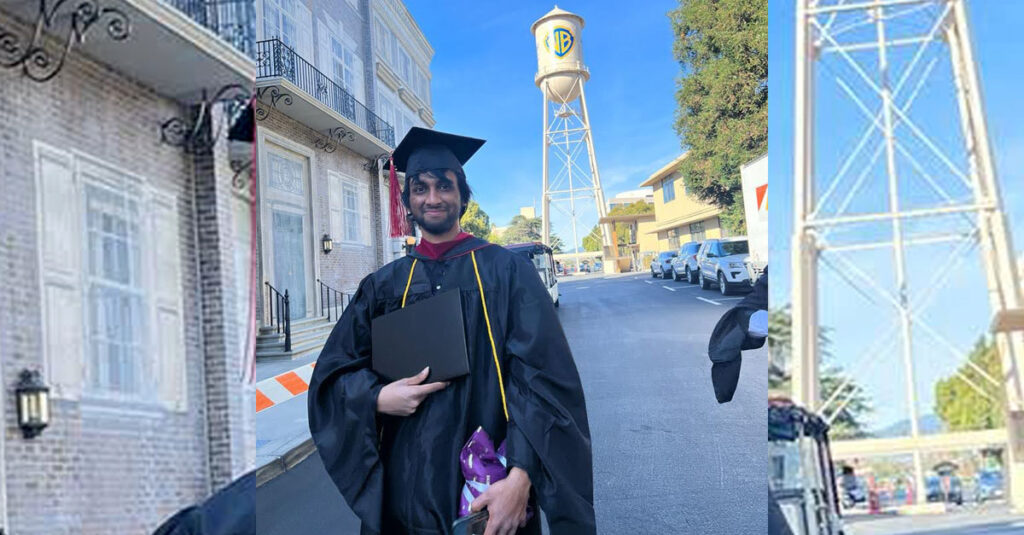
What were the many inspirations that pushed you into this arena? Were your parents supportive in allowing you to take this move?
The main inspiration that pushed me was being in a creative space among like-minded people back in my school’s annual theatre productions. There, we regularly did creative exercises and games to better ourselves as actors and storytellers that made me realise this is something I loved doing and wanted to continue doing.
Since my parents always allowed me to be a part of these ventures, I always had the confidence that they would support me in anything that I wanted to do. But even with that, I understood that it was something new for them as well, and it would have been difficult, despite their belief in me, to grasp the full extent of what I was going to get out of entering into films. I realised I had to prove how serious I was by focussing in school, and doing well, so that they could tell I was serious about my passion, and it wasn’t a case of taking an easy route.
Are you comfortable in both English and Tamil (as far as writing and making short films are concerned)?
I would say from a language point of view I am more comfortable with English, whether it is writing or speaking, but from a story and emotion point of view, I am more comfortable with Tamil, considering I mostly watch Tamil films. Having said that, I genuinely don’t have a preference, nor do I want to. I want to tell stories across both languages, and for both sets of people. But to get to that phase, I need to make a good number of films that are well-received.
Dream Door was both written and directed by you, right? What made you explore such a theme? Where did the idea for the story stem from?
Yes. But the characters and the world featured in the story is different from my personal experience. The core idea was inspired by a personal incident, and for a particular reason: I wished I had a door (strong enough) that would stop the noise pollution from outside. But that feeling stemmed from hate, rather than irritation, which is when I realised the only solution would be to go out and talk to that person, instead of wishing for a door. I realised that by itself was a very powerful theme, and would be really interesting to explore as a story for a short film.
How does the writing bug work for you; are you constantly brimming with ideas for short stories/films and do you also explore other forms of writing?
I would say I am fortunate in that, yes, I am constantly filled with different ideas. These ideas mainly revolve around themes and one-liners that I seek to explore. Thanks to this flurry of ideas, I have written over 10 short film scripts that I will hope to make in the next few years. I also have a couple of feature screenplays along with two unpolished novels. As you can tell, I dabble between different mediums.
Writing and directing are two different creative processes and require equal amounts of talent, patience and perseverance? What are your strengths and weaknesses in both the arenas and which one do you prefer (or, will you be focusing on both)?
Yes, they are two different creative processes and definitely require equal attention, because one can’t prosper without the other. I genuinely prefer both, without a specific inclination towards the other. This mainly stems from the fact that I like writing personal stories, and seek to make films that explore these ideas. This by itself, is my biggest strength and weakness as a writer. It is a strength because I focus on the idea of being personal, without even trying. All of my stories will have something unique that might intrigue someone to want to view my work. But it is also a weakness, because there is the chance of people failing to relate to my personal experience, which might make them apathetic to my work. I am in the process of finding a sweet spot between the two. As far as directing is concerned, I believe my strongest asset is in terms of directing actors. This is thanks to the extensive time I spent in theatre, both as an actor, and learning from the actors around me. In terms of weaknesses, I believe I have some improvement to go in terms of shot designing in the process of making a film. Shot designing is a crucial factor to create the ideal emotional impact.
What were the challenges that you faced in the making of the ‘Dream Door’? Where were the actors sourced from? How long did it take and did it cost a lot? Where was the setting? Was it shot in India and if so, where?
The biggest challenge I faced was the lack of control and delay in confirming things like locations, because I did most of my pre-production from LA. When I came to India to shoot it, I only had a week to finalise dates, crew, locations and some actors, which caused great stress in terms of whether we would be able to pull it off. But luckily, I had extremely kind people next to me, who went beyond their job description to help me make the film. For example, I got most of my crew through my director of photography and got the main location of the film, with the help of my actor. So, in times like this, I can only be grateful.
Another challenge was finding the lead actor, since I required a kid who was entering his teens. I did not know anyone like that, and so was worried, as a good actor is crucial to my film (or, perhaps, any film). People close to me shared my Instagram story, where we put out a casting call, thanks to which we got our amazing lead, who already had good experience acting in feature films in the Tamil film industry. Apart from him, most of the actors were people I knew through friends, who I knew would be a great asset for the film.
The film took three days to shoot, but the post-production took a lot of time, considering I had to find people who were good in sound and colour, as well as editing it to the best possible version. It did cost a good amount of money because we did not want to compromise on quality. But it would be a fraction of what I would have to spend if I shot in LA, which made me feel better about the decision to come to India and shoot it. The biggest takeaway from this is that I learnt that as a director, you shouldn’t care too much about making it look amazing. Your priority should be the story and the actors, and then if you have the resources, you can focus on making the frames look prettier.
You have written 10 or more short films – are you planning to direct them soon, or asking your peer directors to shoot them?
Yes, I wish to direct them myself, because like I said earlier, these are stories stemming from personal themes, which I believe I would be able to do full justice to considering I relate to them. But having said that, I do believe there are moments, where it would be better to step away and let someone with a fresh perspective take over, in order to create the best possible film. I would do that, if I have a script that requires tremendous visual effects. Mainly, because I am not in the position right now to know how to execute it to its best potential, which would motivate me to let someone with better experience take over.
What were your thoughts on seeing your short film after it was created? Was it as you have originally conceived it and has it met all your strict parameters and/or standards in terms of viewing and story-telling excellence?
The first reaction to everything I have made so far has been happiness to see it completed, considering there were moments where I wasn’t sure if we would reach this stage. So, for me, the main thing to do is to show it to other people to see how closely they react to how I felt while watching it.
It has happened where there are moments people don’t understand what happened, while for me it may have been something easy to understand. This makes me realise that films are for the audience, and there are times when I need to make the extra effort to make them understand something. This was the main thing that resulted in my vision for the short film being slightly different from the final output, in that I needed to restructure the story to make it more understandable and emotionally effective.
What next? What are your goals post NYFA?
I completed my course in NYFA last December. My goals post NYFA have been two-fold. I seek to continue making short films, meaning, I am currently in the process of developing my next short film. At the same time, I seek to continue working on film sets to develop my skills and get a good feel on what it takes to make feature films and commercials.
What is your ultimate goal in this arena? Do you have specific goals or are you the type to take each day at a time?
My ultimate goal is to make a series of feature films that I can look back at with a sense of pride and satisfaction. To achieve that goal, my short-term goals have been in developing my skills and trying to practice writing/directing through short films as much as possible.
I am the kind of person who likes to keep myself organised and as thorough in planning as possible, resulting in often mapping out how I want my life to go. A constant reminder this past year has been that life doesn’t work that way. So, for a more peaceful mind, I have strived to live in the present, and try to take each day at a time.
What are the dreams that you harbour close to your hearts and does that include writing and directing full-length feature films?
Yes, my dream, from a career point of view, is to write and direct feature films. Apart from that, I am also interested in publishing a few novels. All of this, I hope indicates, that I am someone who simply loves storytelling and seeks to continue telling stories as long as I can, irrespective of the medium.
(*) PIFF – from Tamil Nadu, India
(* 1) TIFA – from Tamil Nadu, India
(* 2) RIIFF – from the United States of America

0 Comments